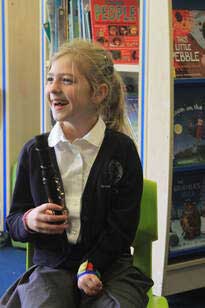 It was over the dining-room table that my dad recently revealed, what was to me, a surprising statistic; only about 9% of disabled children attend special schools according to data collected by the Department of Education. If I were still a teenager, my first thought would’ve been: “Well, where are the other 91%? I’ve never met another disabled child at school.” But looking back, I think the answer is relatively simple; no one notices us. We get on with the difficulties of life uncomplainingly and, for the most part, pretty successfully, so we simply blend in with our able-bodied classmates. I suppose this is a compliment, albeit, in my experience, a somewhat condescending one. I can’t say how many times I’ve heard variations of the phrase: “Well done, for getting on with it,” and I thought, I guess rather uncharitably: “What else am supposed to do?” It’s not that I don’t appreciate the sentiment, but it just appears back-handed. I have no choice in the matter, so I have to find ways around the problems I face. When I can’t help but rely on other people for some things – changing my bedsheets, for example – the things I know I can do, like taking my shopping to my car, take on an extra significance, and so I’m determined to do them myself. (Having said that, if a hot guy offered to carry my shopping, I wouldn’t say no.) Anyway, I digress. The problem with just “getting on” with things is that teachers don’t always pick up on our difficulties. We should expect teachers to be informed about a child with special needs in their class but, this doesn’t always happen, as I discovered first-hand. When I entered secondary school, I found that not all of my teachers knew about my cerebral palsy. This was alright as long as we weren’t doing any two-handed activities, but as soon as we were…It was sometimes several weeks before a teacher became aware of my difficulties. Eventually, I just assumed that a new teacher wouldn’t know about my disability, so I ended up dreading lessons with teachers I didn’t know. Music is one of those subjects where it is particularly important to know of a child’s disability, but, weirdly, visiting instrumental teachers are not often told about such children in advance. Following Dad’s revelations, my journalist’s brain kicked in, and I decided to discover how those disabled children in mainstream schools were coping in music lessons. And so, I spoke to Professor Martin Fautley, Professor of Education at Birmingham City University. He told me that some schools cite GDPR restrictions as reasons for failing to inform instrumental teachers of any disabled children in their class. This obviously causes problems. Martin explained it to me: “If you’re going to turn up with a boot-full of the guitars, for example, and there’s a kid who only has the use of one arm, that might be quite good to know. Otherwise, there’s an embarrassing first lesson where the teacher thinks: “I had no idea you were in the class. I’m not quite sure what you can do.” But there’s another problem. Even if the teacher knows about the child; it’s not easy to find a solution. “First of all, you’ve got to know about it, then you’ve got to be able to do something about it, and then the thing which you wish to be able to do something about has to be available. So, for example, if [a teacher has] a child for whom OHMI would be a suitable organisation to approach, but they don’t know that OHMI exists, then they’re not going to be able to approach OHMI. It’s a vicious circle,” said Martin. And then there’s the cost: “Even if they do know OHMI exists and they want, say, a one-handed recorder, well, they are still a considerable amount of money. A specially-adapted plastic recorder could still cost over a hundred pounds. And they’re not available off the shelf.” As a result, so many disabled children in mainstream schools are left out, and sadly nobody’s quite sure what to do about it. But all you budding musicians shouldn’t despair yet: research, PR stuff and the badgering of important people are going on, so it might not be long before this “vicious circle” is broken. And maybe, it’s worthwhile to own your disability – people will sit up and listen (and perhaps a good-looking chap/girl will offer to carry your shopping!) Comments are closed.
|
CategoriesArchives
June 2024
|

 RSS Feed
RSS Feed
